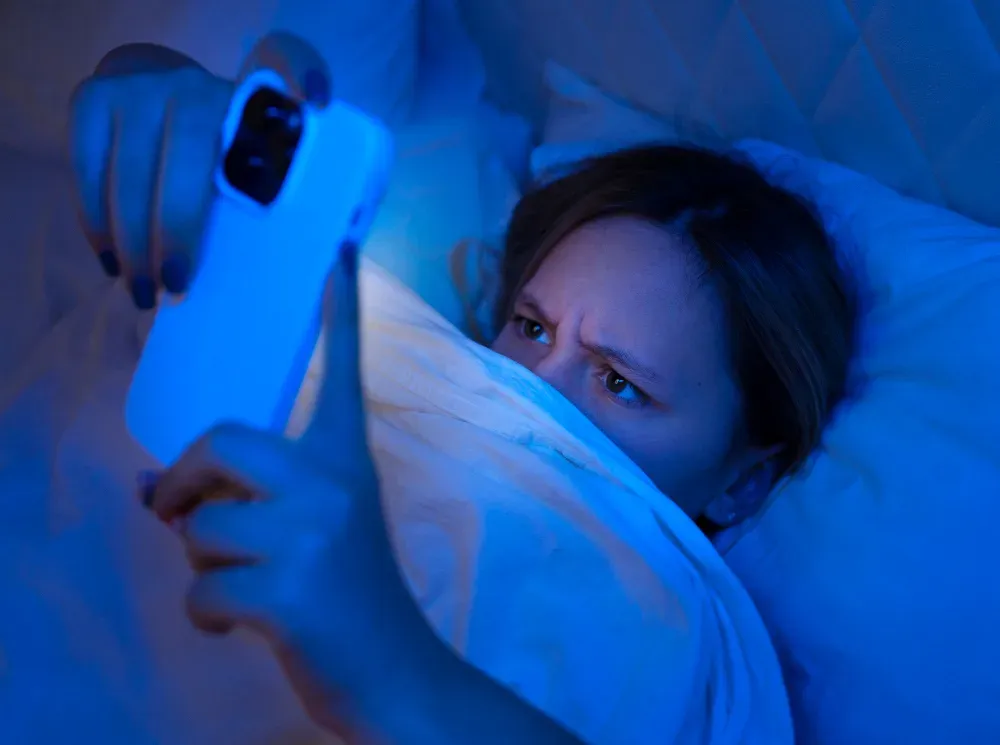How Digital Detoxes Can Rewire Your Brain: A Scientific Exploration
Is your smartphone secretly sabotaging your success? You might think, “Nah, not me. I’ve got this under control.” But let’s be honest how many times have you picked up your phone just to check the time and, 20 minutes later, you’re deep into cat videos or an Instagram spiral? If that hits close to home, you might benefit from a digital detox a purposeful break from screens to reclaim your focus and mental clarity.
On average, we spend over 7 hours a day glued to our screens. That’s more time than most of us spend sleeping. And it’s not just the length of time that’s concerning it’s the way we use it. Our attention is scattered, broken into 8-second bursts.
Our devices have gone from handy tools to relentless attention-thieves. Every ping, every notification bubble is taking away your precious minutes. We’re talking hours lost to scrolling and swiping, and for what? You might think, “Sure, but I’m just being social, staying informed.” But the truth is, this constant digital grazing has a hidden cost, one that’s quietly stealing your focus and leaving you scattered and unproductive.
Your Brain on Screens: A Neuroscientist's Warning
If you’ve ever struggled to put down your phone, even when you know you should, a digital detox might be exactly what your brain needs.
Dr. Andrew Huberman, Ph.D., a neuroscientist and professor at Stanford University, has been studying the alarming neurological impacts of our screen-obsessed world. And what he’s found might surprise you.
Every time you scroll through social media, check a notification, or even glance at your email, your brain gets a tiny hit of dopamine. It's that feel-good neurotransmitter that keeps us coming back for more. Dr. Huberman puts it plainly: “The human brain didn't evolve to handle this many context switches.”
We weren’t designed to bounce from one notification to the next and yet here we are, addicted to the ping of a new message or the thrill of a like on our instagram posts. The average person checks their phone 58 times a day and spends 30 seconds to a minute on each check. Those moments add up and contribute to hours of fragmented attention daily.
Dr. Anna Lembke, professor of psychiatry at Stanford University School of Medicine, also talks about this concern in her book Dopamine Nation, stating, “The smartphone is the modern-day hypodermic needle, delivering digital dopamine 24/7 for a wired generation.” This comparison shows just how powerful and addictive our devices have become, constantly feeding our brains with hits of instant gratification.
But what happens when we live in this constant state of digital stimulation? Huberman’s research shows that our brains can enter a state called "dopamine saturation." It’s when we've overdosed on the feel-good stuff to the point where real-world experiences—like a walk in the park, or reading a book feel boring.
In simpler terms, our devices are training our brains to crave instant gratification and are rewiring our ability to concentrate and find joy in everyday moments. It’s a vicious cycle, but one that science says we can break with the right strategies, like a digital detox.
Reclaim Your Mind: The Digital Detox Revolution
A growing movement of individuals are discovering the power of digital detoxes and the results are often transformative.
David, a 15-year-old who went on a six-month "dopamine detox" was tired of his 16-hour daily screen time and the negative impact of social media on his mental health; he knew he needed a drastic shift. "All over YouTube, I'd see videos about resetting your mind in 24 hours or a week," he explained. Inspired, he decided to push further and committed to a six-month "dopamine detox."
He began by cutting out all social media apps TikTok, Instagram, and Snapchat. The first week tested his willpower. "Week one was probably the hardest," he admitted, as he fought the urge to fill idle moments with scrolling. Determined to succeed, David replaced these habits with more meaningful activities. He took up journaling, a practice that allowed him to process his thoughts, and dedicated time to meditation and reading. To ensure he stayed disciplined, he crafted a detailed daily schedule, writing down his goals and tasks in his phone’s notes app. "When your whole day becomes a routine, you achieve your goals so much faster," he explained.
Over time, the results were remarkable. David's screen time dropped from 16 hours to just 3, and he began noticing positive changes in his life. "I'm in the best shape I've ever been," he said, both physically and mentally. His mindset shifted, too. "I even care a lot less about what people think of me," he shared, attributing his newfound confidence to the clarity and peace he found in real-world experiences. David also discovered an unexpected benefit of embracing boredom. "Being bored was actually a good thing," he reflected. "I'd rather sit and talk to myself in my journal than overstimulate my brain with a video game." This journey toward delayed gratification fundamentally reshaped his outlook on life, proving that the rewards of a digital detox were well worth the initial discomfort.
David’s story shows that a dopamine detox isn’t just a quick fix or a short-term challenge. It requires you to build sustainable habits that put your well-being first. Even if committing to a full six-month detox feels overwhelming, the core lessons from his journey are clear: structuring your day, filling your time with purposeful activities, and embracing delayed gratification.
Strategies for Breaking Free
Now, if you also want to reclaim your own mental clarity and start your own digital detox, here are some practical strategies to get started:
-
Establish Tech-Free Zones in Your Home
Designate specific areas as no-phone zones. You can make your bedroom a place designated only for rest, free from notifications and blue light. If you work remotely, setting up a dedicated workstation for remote work can help your brain draw a clear line between when it’s time to be productive and when it’s time to unwind. Without these boundaries, your mind may struggle to differentiate between work and rest, leaving you perpetually distracted and mentally exhausted.This creates a clear mental boundary and helps your brain associate each space with either focus or relaxation.
-
Adopt Micro-Digital Detoxes
Instead of overwhelming yourself with a long detox, try shorter, intentional breaks from screens. Start with an hour a day then extend it gradually. You can use the
Jolt app to stop yourself from opening your app in these hours, making sure you’re sticking to your plan.
Jolt even lets you celebrate your progress by showing you a daily streak, which can help you build consistency.
-
Use the 20-20-20 Rule to Avoid Eye Strain
Prolonged screen time can lead to digital eye strain, but there’s a simple and science-backed solution: the 20-20-20 rule. Every 20 minutes, take a 20-second break to look at something 20 feet away. Research from Aston University has shown that this practice can significantly reduce symptoms of eye strain, providing relief for your overworked eyes and allowing the muscles to relax. As your eyes rest, take a moment to practice deep breathing, which can further calm your nervous system and recharge your focus.
-
-
Make Time for Nature and Real Connections
Huberman emphasizes the power of natural light and outdoor experiences. Try starting your day with 5-10 minutes of morning sunlight or take a tech-free walk with family or friends. Being in nature not only resets your brain but also nurtures deeper connections with the people around you. It’s a simple yet powerful way to break free from digital fatigue.
Remember, the goal isn't to completely eliminate technology. It's a huge part of our lives, and let's face it, it's not going anywhere. The real goal is to find a balance that works for you.
A New Digital Balance
We’ve learned how our screens are quietly rewiring our brains and stealing our focus, but we also learned that we can change it with digital detox! By understanding how screen time impacts us and taking steps to find balance, we can still enjoy the benefits of technology without being at its mercy.
Remember how we talked about how hard it can be to read even a single page of your favourite book? Well… Just after a month of practicing mindful digital habits, that book might not feel so out of reach anymore. You could find yourself diving back into stories, finishing multiple books, and thinking, “Wow, I really missed this.”
By understanding the neurological impacts of screen time and taking steps to mitigate them, we can harness the benefits of technology without falling victim to its pitfalls.
In a world of constant connection, disconnecting might be your most powerful move. Your brain - and your future self - will thank you.
So, what’s it going to be? The choice is yours. But remember, every moment you spend staring at a screen is a moment you're not fully living in the real world. What will you choose?



 Dr. Manish Singh
Dr. Manish Singh